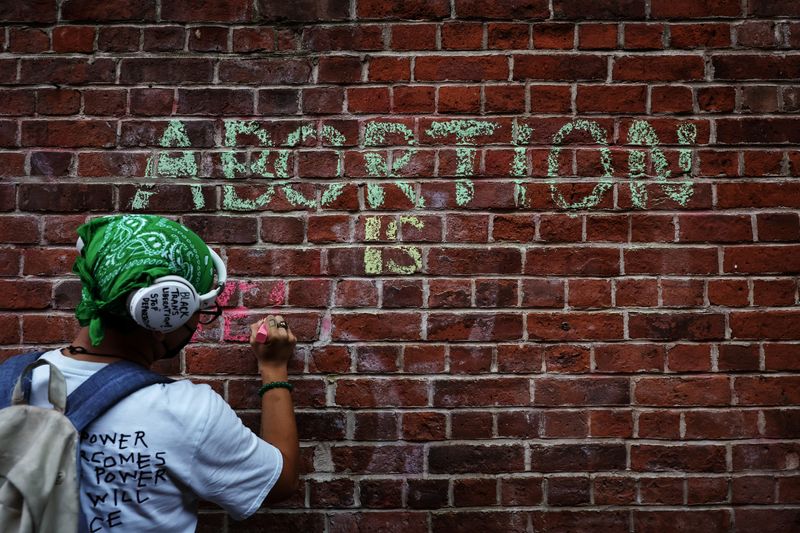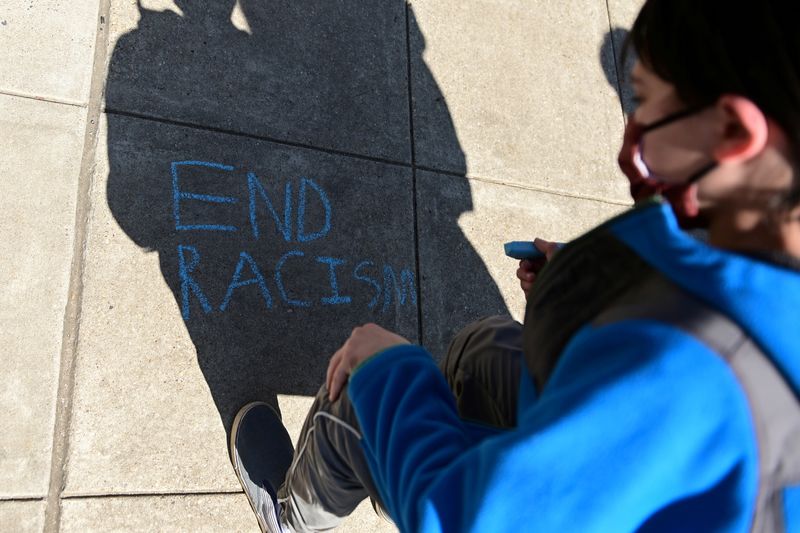By Emma Farge
GENEVA (Reuters) - A UN committee on Tuesday condemned the overturning of the constitutional right to abortion in the United States, saying it was hitting racial and ethnic minorities hardest and asked Washington to take mitigation measures.
The UN Committee on the Elimination of Racial Discrimination said it was "deeply concerned" that the U.S. Supreme Court decision in June that ended the nationwide right to abortion had a "disparate impact on the sexual and reproductive health and rights of racial and ethnic minorities, particularly those with low incomes."
Committee Member Pansy Tlakula said that the 18-member committee had asked Washington during consultations in Geneva this month to take specific measures to stop criminal prosecutions of women and abortion service providers.
"There was a willingness from the United States to look at some of the issues that we raised with them," she told a press briefing, saying it had asked Washington to report back on progress within a year.
The body also called for reparations for Black Americans as part of a broader effort to address centuries of enslavement and said Washington had been receptive to the idea, possibly through legislation or an executive order.
U.S. President Joe Biden has previously voiced support for the idea of a study on reparations for the descendants of slaves. Such measures have been used in the past to offset large moral and economic debts, for example to Japanese Americans interned during World War Two, but polls suggest the idea is not widely popular and could cost trillions of dollars.
"It would have been impossible to have an honest, interactive dialogue with the United States without including the issue of reparatory justice," said Chair Verene Shepherd.
The White House did not immediately respond for comment on the findings.

The recommendations come from a team of 18 independent rights experts that review the record of each of the 182 state parties to the Convention on the Elimination of All Forms of Racial Discrimination every few years. There are official follow-up procedures but no sanctions for non-compliant states.
The committee also released findings on Azerbaijan, Benin, Nicaragua, Slovakia, Suriname and Zimbabwe.
